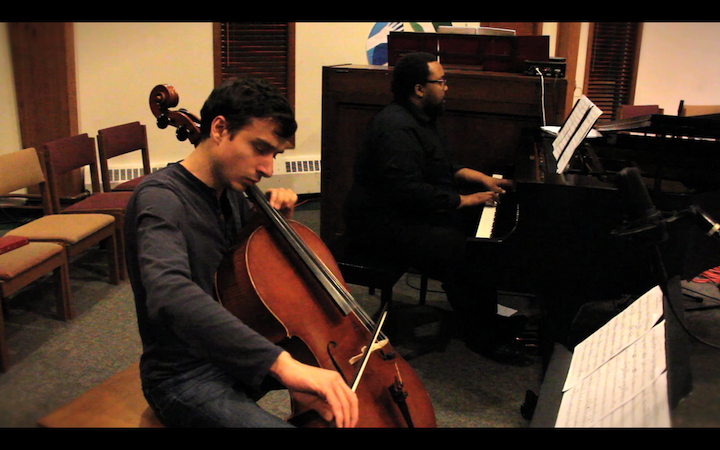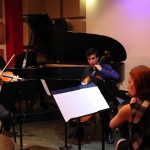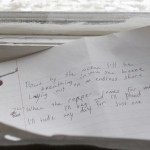Last week, my friends Franco Holder and Charles Asch recorded this cello and piano duet I wrote for them. They’re incredible performers, and they make this sound like the best composition I’ve written. Here’s the video from our recording session:
Feel free to email me (charlie@charliemccarron.com) if you’d like the sheet music.
Here are my program notes:
For every action, there is an equal and opposite reaction. I started with Isaac Newton’s third law of motion as a basic compositional premise for this cello and piano duet. In every aspect of the piece, my underlying rule was balance. The melody that rises must eventually fall. What was minor must become major, and minor again. Each questioning cello phrase is balanced by a piano answer, and vice versa. The moments that break this sense of balance become the cornerstones of the piece, like the climactic ascension to a bright A major chord towards the end.
I wrote “Newton’s Third Law” as a member of the New Age Art Salon, a group of musicians, painters, poets, dancers, and composers inspired by salons of centuries past. Composer Fidelis Odozi and I each wrote a piece that connected thematically. His “Series of Very Short Movements” paints a musical picture of a family getting ready to go to a concert, where they’ll hear “Newton’s Third Law.” The young son resists all attempts by his parents to take him to this stuffy concert. Fidelis and I had fun bouncing ideas back and forth, and we made musical references to each others’ pieces to better connect them. I wrote my piece with our fellow salon members Franco Holder and Charles Asch in mind; they’re both very talented performers who have a strong sense of musical dialogue as a duo.
Beyond the music theory and the thematic story, “Newton’s Third Law” to me personally evokes a feeling of unsettled longing. Though the cello and piano are intricately woven together throughout the piece, they still seem to leave questions hanging in the air. Philosophically, I think of this piece as a struggle with the belief that you can achieve perfect balance and harmony in your life by exerting your own force on the universe. Perhaps Isaac Newton struggled with this same question in his personal relationships (young Isaac threatened to burn his mother, stepfather, and their home), and he turned to science and mathematics to bring order to his own universe.




